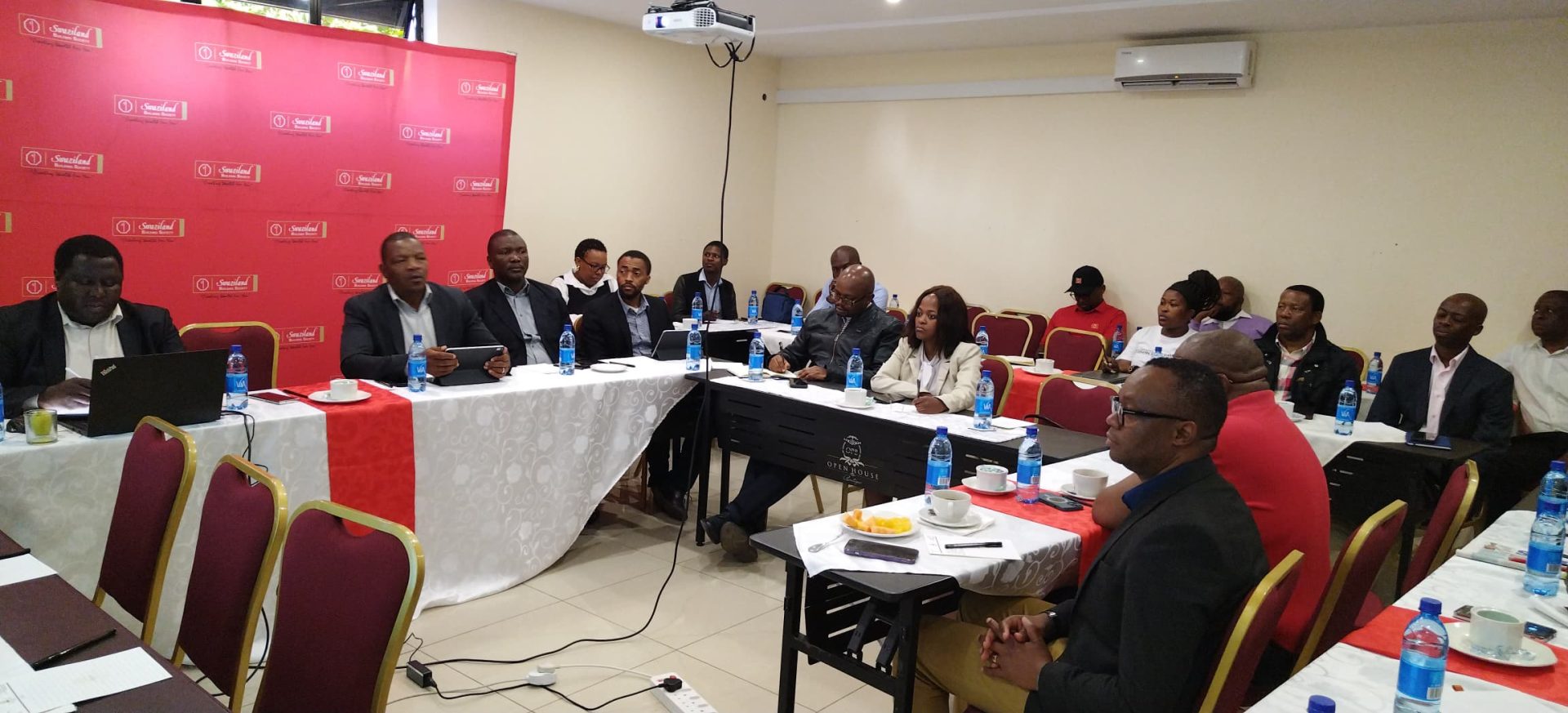by Ncaba Ntshakala
The Swaziland Building Society (SBS) has announced that it is on a journey to evolve into a fully-fledged commercial bank by 2025.
This major announcement was made by SBS Managing Director, Mbali Sibanyoni, during a recent media briefing at the Open House Hotel in Mbabane.
Addressing the press, Sibanyoni reassured SBS’s 11,000 members that their investments would remain secure throughout the transition from a building society to a commercial bank.
“This journey is a significant one, but rest assured, all deposits and investments are protected. We are committed to ensuring that this process is legally, financially, and economically sound,” she emphasized.
Sibanyoni elaborated on the reasons behind the transformation, noting that SBS’s current status as a building society imposes limitations on its operations.
“We want to move beyond those limitations and offer a wider range of products and services, which requires us to convert into a bank and register as a company.

Currently, as a building society, we are regulated by the Financial Services Regulatory Authority (FSRA).
However, as a bank, we will be regulated by the Central Bank of Eswatini, enabling us to broaden our financial offerings, including access to foreign exchange markets,” she explained.
The SBS journey toward becoming a commercial bank began many years ago, with initial discussions taking place in the 1990s.
In 2012, the SBS Board took a decisive step to explore the feasibility of this conversion, and the ensuing report confirmed the time was right for the change.
RELATED: Swaziland Building Society launches Litsemba Group Funeral Plan
Despite the long timeline, Sibanyoni stressed the importance of careful planning.
“We are holding deposits and loans, and it is our responsibility to ensure that the transition is correct in every way.
We must protect the interests of all stakeholders, including depositors, shareholders, and staff,” she noted.
Sibanyoni acknowledged the complexities involved in the conversion, but expressed confidence that SBS would successfully transition to a commercial bank.
She assured members that regular updates would be provided as the process progresses and reiterated the institution’s commitment to transparency and stakeholder engagement.
SBS seeks growth through banking license conversion
The Managing Director of the Swaziland Building Society (SBS), Mbali Sibanyoni when announcing plans to transition the financial institution into a fully-fledged bank, she cited the need for sustainability and expansion beyond its current product offerings.
Speaking on the organization’s growth strategy, Sibanyoni emphasized the limitations SBS faces with only two primary products which are mortgages and personal loans.
She stated that these products are not sufficient to sustain an entity that has been operating for 62 years.
“One of the things we realized is that, while we provide mortgages for people to own homes, we are limited in what we can offer.
RELATED: Central Bank uncovers mortgage lending irregularities
It’s difficult to build a sustainable future with only these two products,” Sibanyoni explained. “We need to offer more, especially in a competitive financial landscape where people are increasingly looking for convenience and comprehensive services.”

Sibanyoni highlighted that the focus of the transition is to create a “one-stop shop” for customers, offering a holistic approach to banking.
This includes expanding into small business financing and commercial banking, sectors that SBS has not previously explored.
The move, she said, will position SBS to better serve a broader range of clients, from individual homeowners to business owners.
As part of the strategy, SBS is seeking to convert into a public company and apply for a banking license.
Sibanyoni noted that this conversion is not merely a shift in the organization’s structure but rather a vital growth phase to ensure the society’s sustainability.
She expressed that while challenges remain, the board is focused on governance and financial inclusion as key pillars for the future.
“The board recognized that for us to remain sustainable and profitable, we needed to introduce more products and improve governance structures.
Once we transition into a bank, our governance will align with the highly regulated banking industry, which is an added advantage for us,” she said.
Sibanyoni concluded by affirming that the core product of mortgages, which has been the foundation of SBS’s success, will remain central to its operations, even as the institution expands into new areas.
“Our growth does not mean we will abandon what has sustained us. Mortgages will continue to be our primary focus,” she stated.


